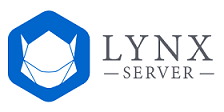When you’re creating a website, you will face numerous decisions regarding content and design among others. A decision that you not be very familiar with is choosing a web hosting service. It can seem very overwhelming when you aren’t acquainted with any of the technical terms, and for this reason we have created a simple guide and explanation for you.
Shared Hosting
It is important to note that this kind of hosting is ideal for small businesses, beginners, sites with small-to-medium traffic, people with tight budgets, and sites that need to be launched immediately.
The way it works is that the hosting company has servers where the data is stored, and they create an account for you to use in which you share this space with other people.
The benefits of opting for this type of service is that it is the least expensive way to get online, and it is usually tailored to be user-friendly and simple to use.
If you are interested in this type of hosting, you can find very affordable hosting plans at Lynx Server.
On the other hand, shared hosting only supports websites with relatively low traffic, so a sudden spike in traffic can cause it to slow down. If this increase persists for a longer time, you may want to consider shifting to another hosting plan.
CMS-Specific Managed Hosting
This kind is ideal forsmall businesses and is tailored to specific content management software (CMS) platforms. These managed hosting services take care of optimization that is usually handled by a developer and make it possible for you to easily control your website without knowledge in coding.
In addition, managed hosting normally allows you to pay according to how much traffic your website gets. On the other hand, your control is limited in terms of using tools you may need that aren’t already offered by your hosting company.
Cloud and VPS Hosting
This is ideal for large sites, applications, and high-traffic sites. They are the best choice if your website or application require a high level of flexibility and customization. Out of all the previous options, this one gives you the most control and allows you to install any tools or processes that you might need.
On the downside, it is complex and high-maintenance. You will need an expert to manage your website and to make sure that all its aspects are up-to-date.
According to this information, assess your website size and needs, and learn more about the features and plans offered by different hosting servers. Then, choose the one that will work best for you!



